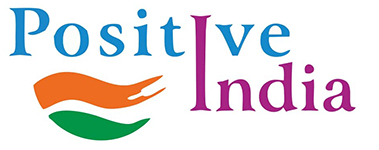
CSIR-CDRI and Marc Lab develop a new safer drug for heart attack and stroke post Covid
Prophylactic use of compound S-007-867 could be useful for COVID -19 induced complications.

CSIR-CDRI, Lucknow committed to support Pharma Cluster in Uttar Pradesh and tied up with UP-based Company for developing a new drug
CSIR-CDRI and Marc Laboratories Ltd, India come together to develop a new safer drug for heart attack and stroke
CSIR-CDRI and Marc Laboratories Ltd, India sign License agreement for developing drug for coronary and cerebral artery diseases
Posted On: 11 JUN 2021 2:57PM by PIB Delhi
CSIR-CDRI, Lucknow is committed to support Pharma Cluster in Uttar Pradesh and has tied up with UP-based Marc Laboratories Pvt. Ltd., India, a young progressive enterprise with operating base in 13 other states. It has signed an agreement for the development of a synthetic compoundS-007-867 as modulator of blood coagulation cascade, in particular as inhibitor of collagen induced platelet aggregation. This may be helpful in treating patient population of coronary and cerebral artery diseases.
The institute has recently obtained the permission to initiate the Phase I clinical trials for the drug.
Arterial thrombosis is an acute complication that develops on the chronic lesions of atherosclerosis leading to heart attack and stroke. Therefore, inhibition of platelet collagen interaction is anticipated to be a promising therapeutic strategy to treat intravascular thrombosis. The compound S-007-867 significantly inhibits collagen mediated platelet activation and subsequently reduces the release of ATP from dense granules and thromboxane A2 via COX1 activation. Thus, it effectively maintains blood flow velocity and delays vascular occlusion (blockage of the blood vessel, usually with a clot) and inhibits thrombogenesis (formation of blood clot) without compromising hemostasis. This drug has less bleeding risk as compared to presently existing therapies for coronary and cerebral artery diseases. In animal experiments, the compound elicited better antithrombotic protection than the standard of care with minimal bleeding tendency. The institute has recently obtained the permission to initiate the Phase I clinical trials for the drug.
Prophylactic use of this compound could be useful for COVID -19 induced complications.
Besides, in COVID-19 disease, critical patients with ARDS, have high D-dimer and reduce prothrombin time (PT), suggesting pro-thrombotic state. In addition, these patients have high number of circulating neutrophils, inflammatory mediators/cytokine, CRP and lymphocytopenia. Therefore, drugs reducing platelet reactivity and neutrophil activation could be beneficial and based on these criteria the prophylactic use of this compound could be an option due to its high safety and less effect on bleeding time.
On this occasion, Prof. Tapas K. Kundu, Director (CDRI) said “This is a great moment for CSIR-CDRI, the premiere drug development and research institute of the country to license out an in house developed compound for further investigations as part of our commitment of affordable healthcare for all. He added that he is optimistic that this compound would reach market in quick time to benefit the humanity.
He further mentioned that this Industry-Institute partnership will surely be very beneficial for development of Pharma cluster in Uttar Pradesh and will open up new avenues for it by their collective efforts as broadly visualized by Union Minister for Health & Family Welfare, Dr. Harsh Vardhan, Director General, CSIR, Dr. Shekhar C. Mande and Chief Minister, U.P., Yogi Adityanath. This is a small effort to fulfil their vision”
Likewise, Mr. Prem Kishore, Chairman Marc Laboratories said, “Marc’s association with CSIR-CDRI will be beneficial to both parties and they will be working hard to take the compound forward so that it sees light of the day soon”.


